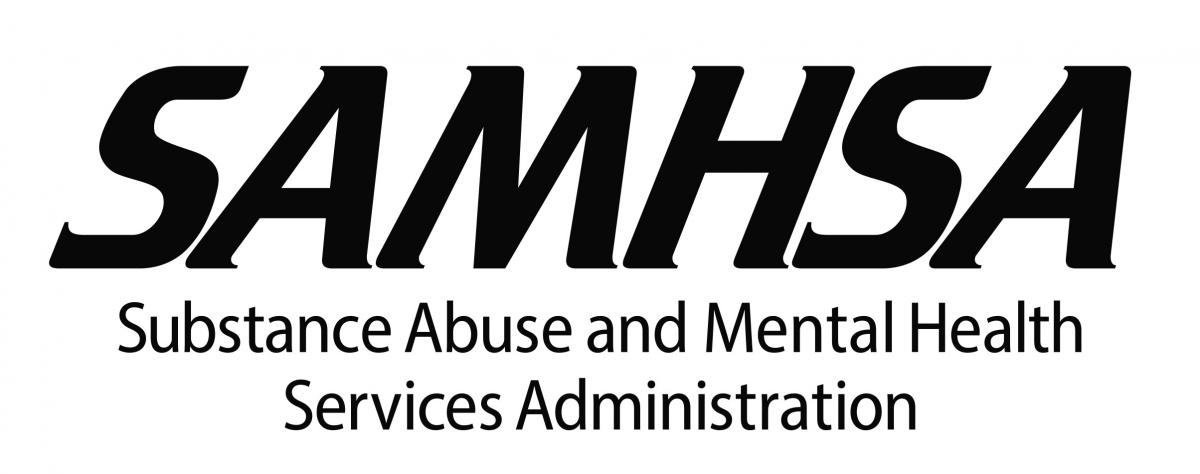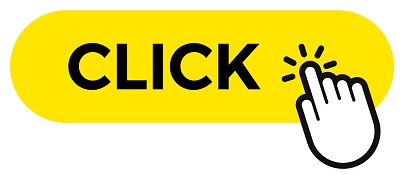|
Governor Hochul Announces 125 Awards to Provide Operating Funding for up to 5,000 Supportive Housing Units Statewide
Governor Kathy Hochul last week announced 125 conditional awards for annual funding to provide services and operating expenses for up to 5,000 units of supportive housing to serve older adults, survivors of domestic and gender-based violence, veterans and chronically homeless families as well as individuals with a mental illness or substance use disorder, among others. The 125 conditional awards through the seventh round of the Empire State Supportive Housing Initiative will fund supportive housing in 35 counties and allow recipients to secure separate capital funding to finance housing projects. Read more here.
| |
New York Names New Acting Commissioner of Children and Family Services
Attorney Suzanne Miles-Gustave takes over this year as New York’s acting commissioner of the Office of Children and Family Services. Quietly announced on the state’s website last month, Miles-Gustave will now lead all juvenile justice and child welfare matters throughout the state. Miles-Gustave joined the agency in 2014 as a general counsel and deputy commissioner. She has also led the agency’s division of legal affairs and advised the New York governor’s office on all statutory, regulatory, compliance and risk issues. Read more here.
|  | |
SAMHSA Announces National Survey on Drug Use and Health Results Detailing Mental Illness and Substance Use Levels in 2021
On Wednesday, the U.S. Department of Health and Human Services’ (HHS) Substance Abuse and Mental Health Services Administration (SAMHSA) released the results of its annual National Survey on Drug Use and Health (NSDUH), which shows how people living in America reported about their experience with mental health conditions, substance use, and pursuit of treatment in 2021. The 2021 NSDUH national report includes selected estimates by race, ethnicity, and age group. It is the most comprehensive report on substance use and mental health indicators that SAMHSA has released to date. Read more here.
|  | |
Watch: A Wave of Overdoses is Hitting an Already Vulnerable Population
Francesca Coleman, known to friends as “St. Louis,” has been unhoused since the age of 15. Now 24, Coleman sleeps in Tongva park, across from the famous Santa Monica pier in California. Like many unhoused people in the Los Angeles area, Coleman uses meth in an attempt to ease chronic pain, anxiety, and depression.
On a Wednesday morning in July, physician Coley King checked in with Coleman in Tongva Park. King practices street medicine, which means the majority of his patients are unhoused, and Coleman is one of his patients. A routine part of King’s rounds is warning drug users about fentanyl, which has been increasingly tainting other street drugs, and has been a major factor in the U.S.’s accelerating overdose rate. Read more here.
Related: Experts Say NY's Response to Fentanyl, Driving the Opioid Crisis, Is Not Reversing Spiking Death Rates
NY Docs Are Now Required to Prescribe Naloxone to Some Patients on Opioid Painkillers
|  | |
Marijuana Use Spills Into NYC Classrooms As Educators Grapple With New Cannabis Landscape
The Manhattan 16-year-old started smoking weed to get over a bad breakup, initially keeping the habit outside school hours. Soon, though, he was using marijuana to address other mental health issues, like depression that suppressed his appetite and anxiety that made it difficult to go to class. He began getting high between classes.
Teens experimenting with marijuana is nothing new, but the legal landscape and market for the drug have shifted rapidly, making it easier for young people to get more potent cannabis products they can use discreetly before or during school. At the same time, the ongoing youth mental health crisis, exacerbated by the pandemic, may be pushing more kids to self-medicate with marijuana. Read more here.
Related: 3,000+ young children accidentally ate weed edibles in 2021, study finds
| |
PODCAST: SUNY Rockefeller Institute of Government Policy Insider: How Does New York's Pending Medicaid Waiver Address Health Equity?
In New York, Medicaid provides healthcare for nearly 8 million people and half of all births. With the COVID-19 pandemic highlighting existing health disparities and disrupting the health care system, there is a significant need and opportunity to innovate Medicaid care delivery. On the latest episode of Policy Outsider, we examine how New York is using a Section 1115 waiver to address health equity issues. The State’s Acting Medicaid Director, Amir Bassiri, and Rockefeller Institute Senior Fellow for Health Policy Courtney Burke join the show to discuss how the waiver works, the goals the waiver seeks to accomplish, strategies for achieving those goals, and a vision for the future of Medicaid. Click here to listen to the podcast.
|  | |
Health Equity is Everyone’s Business; Success Requires a Strategy Rooted in Community Voice and Data
Health equity affects all of us—either directly or indirectly—and the lack of equity could be pushing us into a financial crisis. Health equity is the fair and just opportunity for every individual to achieve their full potential in all aspects of health and well-being. Health inequities cost us $320 billion a year. If we don’t change course, that number could reach $1 trillion by 2040. While many health care organizations have focused on health equity since that report, the care patients receive (and the outcomes they experience) can still vary widely by race, age, income, ethnicity, gender, and ZIP code. Read more here.
|  | |
HHS Proposes New Rule to Align “Part 2” SUD Provider Confidentiality with HIPAA Privacy Standards
On November 28, the Department of Health and Human Services (HHS), through the Office for Civil Rights (OCR) and the Substance Abuse and Mental Health Services Administration (SAMHSA), released a proposed rule that seeks to better align the Confidentiality of Substance Use Disorder Patient Records regulations under 42 CFR part 2 (Part 2) with the regulatory requirements under the Health Insurance Portability and Accountability Act (HIPAA). Part 2 currently imposes different requirements for substance use disorder (SUD) treatment records protected by Part 2 than HIPAA does. OCR and SAMHSA indicate that the changes are intended to improve care coordination for patients seeking or undergoing SUD treatment, ease patient privacy concerns, and break down barriers to information sharing by easing compliance complexities and providing patients with additional rights.
If the rule is finalized, entities subject to it will have until 22 months after the rule’s effective date to comply. Public comments on the proposed rule are due January 31. Read more here.
| |
|
HHS Offers States Flexibility to Better Address Medicaid Enrollees’ Needs
On Wednesday, the United States Department of Health and Human Services (HHS), through the Centers for Medicare & Medicaid Services (CMS), is releasing guidance on an innovative opportunity for states to address health-related social needs for people with Medicaid coverage through the use of “in lieu of services and settings” in Medicaid managed care. This option will help states offer alternative benefits that take aim at a range of unmet health-related social needs, such as housing instability and food insecurity, to help enrollees maintain their coverage and to improve their health outcomes. The Biden-Harris Administration is committed to protecting and strengthening Medicaid. Read more here.
|  | |
Most LGBTQ Youth Can’t Access Mental Health Care. How Schools Can Help
A majority of LGBTQ students in every state except two said they sought mental health care but were unable to access it, according to a Trevor Project report. In Vermont and Minnesota, 45 percent and 49 percent of LGBTQ youth, respectively, were not able to get the mental health care that they wanted, the report found. In all other states, the percentage of LGBTQ youth who were not able to access mental health care ranged from 50 percent to 72 percent, with Nevada having the highest percentage of such students. Read more here.
|  | |
Telehealth Helps Stop Suicidal Ideation for Many Patients, Study Finds
Recently, the Journal of Medical Internet Research
published some significant data highlighting the efficacy of psychiatric care delivered through telehealth: Those in the treatment group were 4.3 times more likely to have suicidal ideation remission.
This is noteworthy because telehealth has not traditionally been equipped to treat those with the most severe symptoms of mental health due to the oversight necessary to actually provide safe, effective treatment, said Dr. Mimi Winsberg, chief medical officer at Brightside Health, which led the study. Read more here.
|  | |
In County Jails, Guards Use Pepper Spray and Stun Guns to Subdue People in Mental Crisis
When police arrived on the scene, they found Ishmail Thompson standing naked outside a hotel near Harrisburg, Pa., after he had just punched a man. After they arrested him, a mental health specialist at the county jail said Thompson should be sent to the hospital for psychiatric care.
However, after a few hours at the hospital, a doctor cleared Thompson to return to jail. With that decision, he went from being a mental health patient to a Dauphin County Prison inmate. Now he was expected to comply with orders — or be forced to. Read more here.
|  | |
UPCOMING EVENTS & TRAININGS
Reducing Jail Populations: Decreasing Pretrial Length of Stay by Improving Court Proceedings and Pretrial Services and Supervision
January 5, 2 - 3 pm, NACo
Review of Draft for Public Comment: Certified Community Behavioral Health Clinic (CCBHC) Certification Criteria
January 5, 2 - 3 pm, SAMHSA
New Medicaid Opportunities for Financing Health-Related Social Needs: A Conversation With States
January 9, 2023, 3 - 4 pm, Manatt Health
Strategies for State-Local Collaboration in Opioid Settlement Spending: Spotlight on Nevada and Wisconsin
January 11, 12 - 1 pm, NASHP
Introduction to PSYCKES
January 11, 1 - 2 pm, OMH
Prioritizing Tobacco Treatment in Substance Use and Recovery Masterclass
January 17, 2 - 4 pm, National Council for Mental Wellbeing
Advancing Trauma- and Resilience-Informed Health Care Systems: Early Lessons from Denver Health
January 18, 1:30 - 3 pm, Center for Health Care Strategies
Supporting the Health and Well-Being of Rural LGBTQ Adults
January 18, 1 - 2 pm, Rural Health Research Gateway
Reframing Language in Behavioral Health Care: New Tools You Can Use
January 18, 2 - 3:30 pm, Hosted by four centers of excellence: Family Support, African American , Aging, and LGBTQ+ behavioral health
Co-Occurring Disorders: a conversation about Mental Health and Substance Misuse/Addiction
January 18, 7:30 - 8:30 pm, MHANYS
Trauma-Informed Peer Support for Justice-Involved Peers
January 23 - 26, 1 - 4 pm, Mental Health Empowerment Project
PSYCKES for Health Homes and Care Management Agencies
January 24, 10 - 11:30 am, OMH
An aging undocumented population: Implications for complex care and communities
January 26, 3 - 4 pm, Camden Coalition
Where to Start: Getting Access to PSYCKES
January 31, 11 am - 12 pm, OMH
NYS OMH DFS Spotlight of Innovative Diversion Services
February 8, 10:30 am - 12 pm, OMH Division of Forensic Services
Diversity, Equity and Inclusion (DEI) Plus – Building a Culture of Inclusion
February 8, 1 - 2 pm, National Council for Mental Wellbeing
| |
CLMHD CALENDAR
JANUARY 2023
LGU Clinic Director Call
January 10: 10 - 11:30 am
Addiction Services & Recovery Committee Meeting
January 12: 11 am - 12 pm
Mental Health Committee Meeting
January 12: 3 - 4 pm
CLMHD Office Closed - MLK Jr. Day
January 16
Children & Families Committee Meeting
January 17: 11:30 am - 1 pm
CLMHD Membership Call
January 18: 9 - 10:30 am
| |